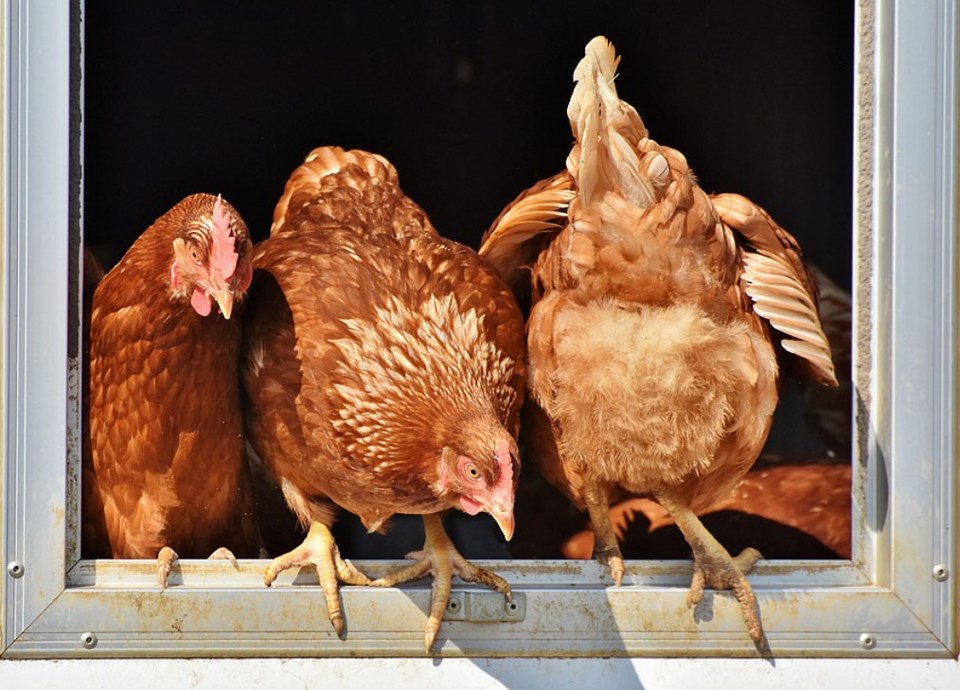Delta homeowners who have backyard chickens can check out free, online information sessions by the B.C. Ministry of Agriculture and Food on how to help protect small flocks from the highly pathogenic avian influenza.
The sessions on Nov. 30 and Dec. 5 (registration link https://www.eventbrite.ca/o/bc-ministry-of-agriculture-and-food-52507526703) will be an opportunity to learn how to prepare as the Canadian Food Inspection Agency (CFIA) recently confirmed that several commercial poultry farms in the Fraser Valley tested positive for avian influenza.
The B.C. government has notified producers within a 10-kilometre radius of each of the positive test results.
The risk of avian influenza to commercial poultry farms and small flocks increases each spring and fall with the migration of waterfowl and other birds to and through B.C., the ministry notes.
Since the first 2022 confirmation of avian influenza in B.C. poultry in mid-April, there have been 36 cases in B.C.
Eighteen were before June, and 18 since September after the fall migration began. Of the 36 cases, 14 were on commercial farms, 21 in small flocks and one in a captive wild bird, the ministry explained in a news release last week.
Avian influenza is a federally regulated disease, and the CFIA leads the investigation and response with provincial support for testing, mapping, surveillance and disposal. B.C.'s Ministry of Agriculture and Food continues to work closely with the CFIA and B.C. poultry producers to ensure enhanced prevention and preparedness measures are in place to protect poultry flocks.
Earlier this year, Delta residents who keep their own backyard chickens were notified to be on the lookout for signs of avian influenza.
Delta staff at the time confirmed the notification in response to a letter of concern to council about the spreading bird flu virus and how the keeping of chickens in residential areas may increase the risk of transmission.
Delta hen owners are provided information which includes provincial and federal resources and educational materials, as well as contact information should hen owners need further support.
The city also has a web page with information for hen owners on how to prevent and detect disease in backyard flocks (See more at https://www.delta.ca/services/delta-community-animal-shelter/licensing-permits)
Delta requires those keeping backyard chickens to licence them with the city and register their property with the BC Ministry of Agriculture and Food.
Registering through the province’s Premises ID Program will assist with tracking of birds during any disease outbreaks.
Delta council last year approved a bylaw amendment to permit residents to have backyard chickens in single-family neighbourhoods.
The amendment removed a previous requirement of properties having chickens being located next to agriculturally-zoned properties.
No minimum lot size is required.
Roosters are prohibited and the number of hens permitted on a property is restricted to four.
The bylaw also requires food and manure to be removed to reduce smell and pest impacts. Coops and runs are limited to a maximum of 108-square-feet of combined indoor and outdoor space.
Chickens are also to be kept for personal use and shall not be kept for the purposes of selling meat, eggs or other products.



